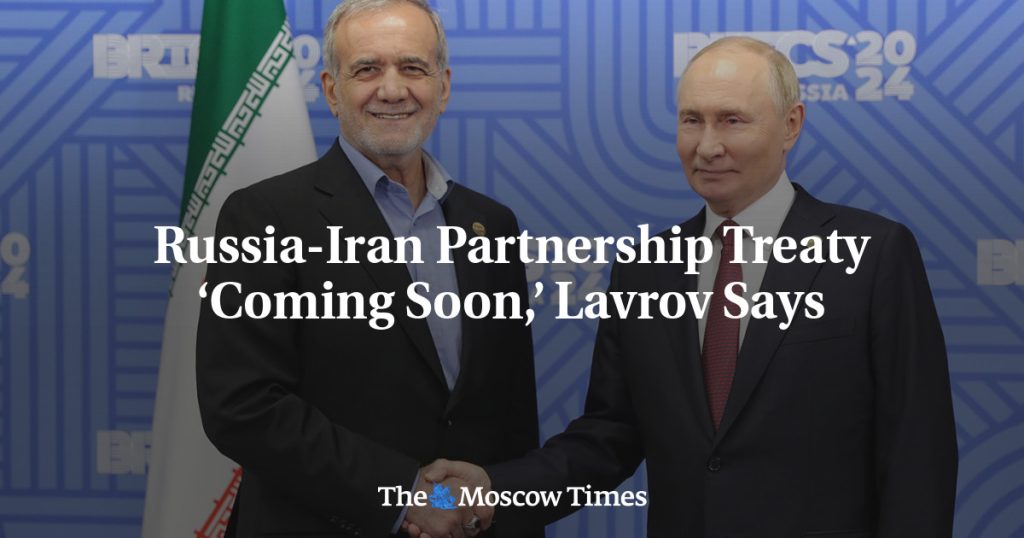Russia and Iran are planning to sign a strategic partnership agreement in the near future, as announced by Russian Foreign Minister Sergei Lavrov. This comes as both countries face heavy Western sanctions and have been deepening their political and military ties since Russia’s invasion of Ukraine in 2022. President Vladimir Putin has described Russian-Iranian relations as a priority and invited Iranian President Masoud Pezeshkian to visit Russia to sign a comprehensive cooperation agreement.
Lavrov stated that the strategic partnership agreement between Russia and Iran will focus on closer defense cooperation and collaboration for regional and global peace and security. The agreement is expected to solidify the commitment of both parties to work together in various areas. Additionally, Russian lawmakers recently ratified a similar strategic partnership treaty with North Korea, amid reports of North Korean troops being sent to assist Russia in its conflict against Ukraine.
Western governments have accused Iran of supplying drones and missiles to Russia, which Tehran has denied. The European Union imposed sanctions on Iran over suspicions of providing drones to the Russian military. The allegations of Iran aiding Russia in its military operations have heightened concerns and tensions among Western countries. The growing partnership between Russia, Iran, and North Korea in the face of international criticism raises questions about the motives and implications of their collaboration.
The deepening ties between Russia, Iran, and North Korea reflect a shift in geopolitical dynamics and alliances, particularly in light of Russia’s conflict with Ukraine and its strained relations with the West. The increasing cooperation between these countries poses challenges to regional and global security, as well as to the balance of power in international relations. The strategic agreements being pursued by Russia with Iran and North Korea signify a reconfiguration of alliances in response to geopolitical challenges and pressures.
The involvement of Russia, Iran, and North Korea in strategic partnerships and defense treaties underscores the complex and evolving nature of global politics. The alliances formed between these countries have the potential to reshape international dynamics and influence regional conflicts. The implications of these partnerships extend beyond the immediate geopolitical landscape and have broader implications for global security and stability. As Russia strengthens its ties with Iran and North Korea, the international community will closely monitor the developments and assess the impact on regional and global affairs.
The strategic partnership agreements being pursued by Russia with Iran and North Korea highlight the shifting geopolitical landscape and the emergence of new alliances amid ongoing global challenges. The deepening ties between these countries could have far-reaching consequences for regional security, international relations, and the balance of power in the world. As Russia expands its partnerships with Iran and North Korea, the dynamics of global politics are likely to undergo significant changes, leading to increased tensions and complexities in the international arena. The evolving relationships between Russia and its allies underscore the need for a nuanced understanding of geopolitical developments and their implications for global order.














